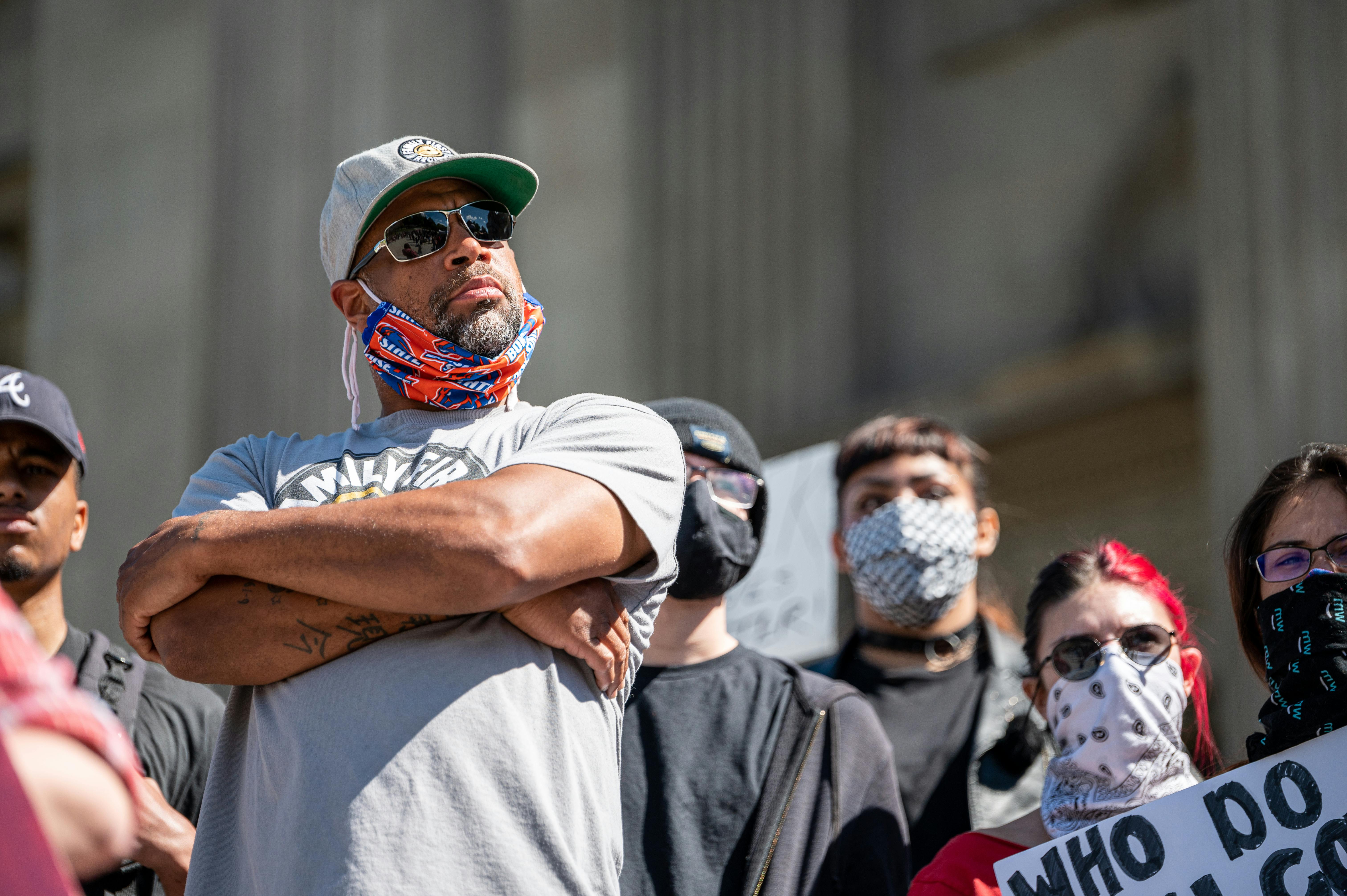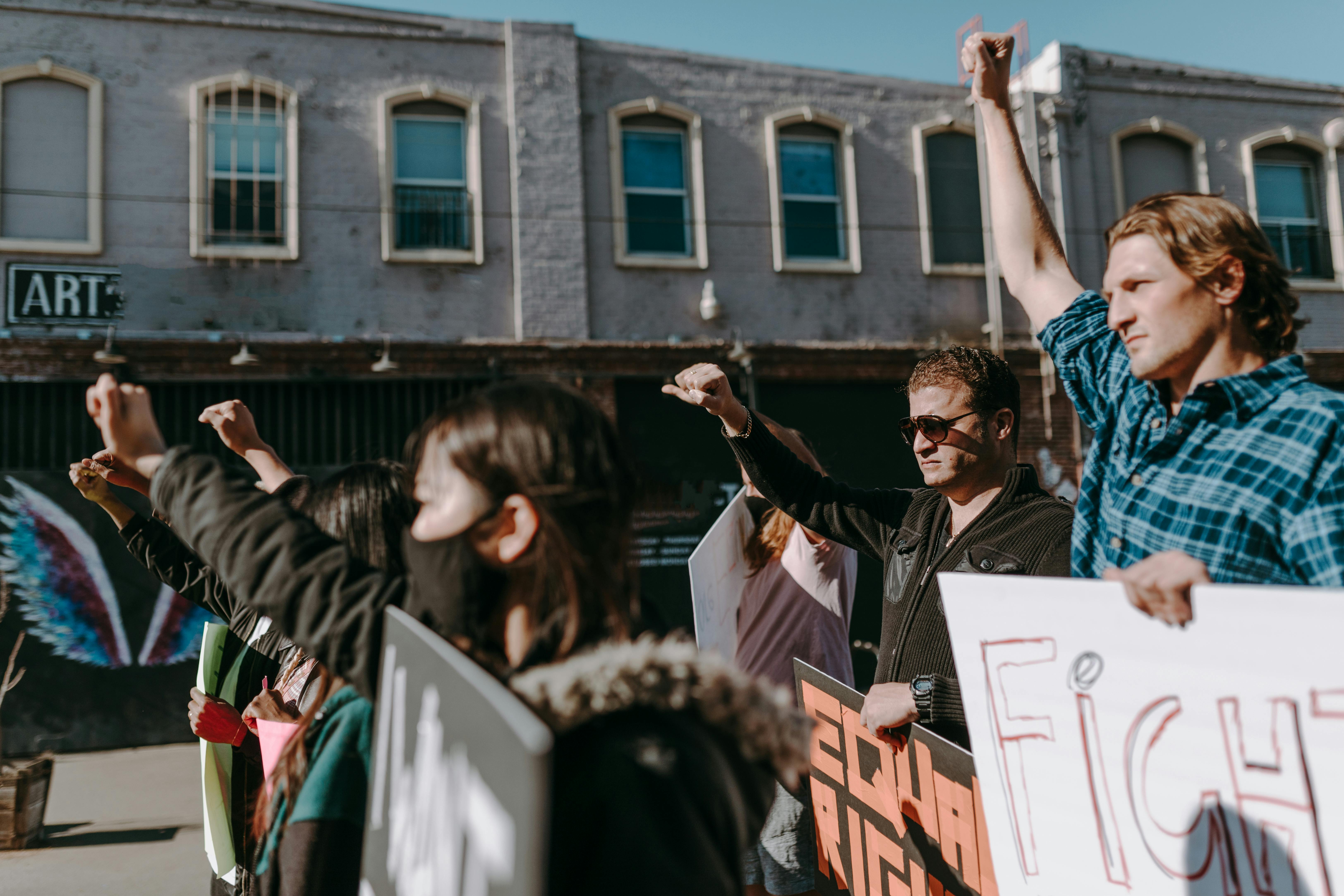Many words mean the same thing and can equally be used in context to clarify ideas and concepts in the standard writing process. However, some synonyms can be used euphemistically to manipulate a reader’s or listener’s reaction to the context of a statement. Take the word “lie” for example. The dictionary definition of the word lies is “a false statement made with the deliberate intent to deceive.” In 2003, the defining use of the word “lie” became ambiguous when applied to statements made by President George W. Bush and Vice President Richard Cheney about the imminent danger posed by Iraqi weapons of mass destruction to USA.
We now know that Iraq did not possess weapons of mass destruction in the months before the Iraqi invasion, nor did the country pose a serious threat to US security. According to the Downing Street Memorandum, which has been routinely downplayed by the media and ignored by Congress, there is undeniable evidence of collusion and conspiracy on the part of the Blair and Bush administrations, months before the Iraqi invasion, to deliberately mislead the American and British peoples. in supporting the pending war. However, the media’s use of the word “lie” to apply to the conduct of the Bush Administration was somehow not considered appropriate.
Instead, they used the word “prevaricate,” which means “to speak falsely, deceitfully, or to avoid the truth; deliberately misrepresent; misrepresent; lie.” Although the two words seem to have an identical definition, prevaricate does not have the same forceful tone of accusation that is conveyed by using the word “lie.” But is there any real difference? If I were to say that Peter took an old man’s money without permission, intending to keep it for himself, I could also correctly say that Peter stole the money. Furthermore, if you were to say that Peter took the money and then deny doing so, you could also equivalently say that Peter lied about taking the money. What if he said, instead, that Peter took the money and then beat around the bush about doing it? What would be the difference between my two statements? Would the use of the word “prevaricate” change the circumstances or mitigate the fact that Peter denied stealing the money? I do not think so.
A double standard has always been widely used when considering the conduct of kings, presidents and prime ministers compared to the common people of a nation-state. And the misuse of colloquial words and expressions has commonly been the means by which double standards have been applied. This is because kings, emperors, and other monarchs were historically considered sources of law, so they were also considered sacrosanct and incapable by people of committing crimes.
If, for example, a king or emperor by divine right had provided the means for those close to him to evade questioning during an investigation of crimes against the state, would the ruler have been guilty of obstruction of justice? In a historical reference, maybe not. If the ruler claimed sovereign immunity so that he could commit acts, normally considered crimes, with complete impunity, which many kings did, the ruler had a way out. So how about an elected president or prime minister in a contemporary law system where everyone in the state is equally bound by the law? Equal protection under the law and equal liability for breaking the law sound good when legislated as general principles. But in saying that presidents, prime ministers, and ordinary citizens are equal before the law, strict application and enforcement of guiding constitutional principles are ultimately necessary as proof that all people are treated equally in a nation of laws.
Such has been the strict enforcement and enforcement of criminal law in the United States with respect to our Presidents, Vice Presidents, US Senators and Representatives, and all other civil officials pursuant to Article 1, Section 3 and Article 2, Section 3 of the United States Constitution? Of the sixteen “infamous” federal civil servants indicted since 1789, only one senator, William Blount, was formally investigated in 1799 for felonies, but was not convicted because, above all, the Senate declared that it had no jurisdiction to try. try one of your own, which was constitutionally wrong. The two presidents on the list, Andrew Johnson and Bill Clinton, were indicted but cleared of their charges. Of the nine federal judges charged, six were tried, convicted, and removed from office. Three were acquitted. The only indicted Supreme Court justice, Samuel Chase, was acquitted in 1805. No vice president has ever been indicted.
Does the above disciplinary record say anything about the double standards that occur in the federal criminal justice system? Is it possible that if each impeachment acquittal mentioned above were closely examined in retrospect by an honest county attorney, in strict compliance with federal law, political deceit and Machiavellian compromise would be found as convenient grounds for adjudicated innocence? A prominent senator majority leader once said publicly that trying presidents and senators for misdemeanors is a waste of valuable congressional time.
The sanitized Congressional Record did not reflect any opposition to this senator’s statement on the floor of the Senate, so my guess is that there were ninety-nine other senators who agreed with him. Perhaps if Richard Nixon had been tried by the Senate for the list of crimes charged against him, he too would have been acquitted. Maybe not. But we do know that Gerald Ford pardoned him before he could be indicted by the Justice Department after resigning as president.
What about presidents other than Nixon who got away with committing major crimes while in office for good like James K. Polk, Warren G. Harding, Franklin Roosevelt, and possibly Ronald Reagon and George H. Bush? What did Polk do? He lied to Congress about who started the fight with Mexico in 1848 to get a declaration of war against Mexico because of Manifest Destiny. he was gene Zachary Taylor, who actually started the Mexican War by having one of his soldiers shoot and kill (murder?) a Mexican cavalryman from across the Rio Grande. More than two thousand people, both Mexican and American, died in that unjust war.
Americans who have studied history know about the Teapot Dome scandal and President Warren G. Harding’s vaunted ignorance of money laundering that occurred between Harding’s Secretary of the Interior, Albert B. Fall, and an oil operator, Henry F. Sinclair. . Several people became rich from the illegal exchange of money, but Harding claimed that he did not know anything about what was going on. Fall was the only federal officer tried and convicted of the felony conspiracy and grand larceny. Perhaps, in addition to being considered a failure as president, Harding should have been impeached and tried by the Senate for presiding over the Teapot Dome scandal and doing nothing about it.
Based on meticulous historical research by Dr. Charles Tansill, Distinguished Professor of Diplomatic History at Georgetown University, author of “Back Door to War: Roosevelt Foreign Policy, 1933-1941,” John Toland, distinguished writer, historian, and author From “Infamy,” George Morgenstern, a Phi Beta Kappa graduate of the University of Chicago who served as a captain in the US Marine Corps and wrote the book, “Pearl Harbor: The Secret War Story” , published in 1947, Charles A. Beard , noted historian and author of “President Roosevelt and the Coming of War, 1941: A Study in Appearances and Realities”, and Frederick R. Sanborn, historical writer and author of ” Designing for War: A Study in Secret Politics, 1937-1941″, Franklin D. Roosevelt covertly planned the Japanese surprise attack on Pearl Harbor and knew, at least 48 hours in advance, that the Japanese fleet would devastate to vulnerable US naval fleet. Due to the large number of secret documents and records kept out of the reach of the Blue Ribbon Pearl Harbor Commission by US Army intelligence agents, the commission was unable to uncover the facts and the disturbing truth about Pearl. Harbor and the American entry into World War II. .
It was not until the late 1940s that Harry Truman published documents showing that FDR conducted secret negotiations with Winston Churchill, from 1939 to the late 1940s, assuring the British Prime Minister that the United States would enter the war against Hitler. Knowing that Franklin Delano Roosevelt had sufficient knowledge to warn Naval Command of Pearl Harbor well in advance of the impending Japanese attack, but instead ordered his War Department staff to allow the surprise attack to occur, there is no alternative but call Roosevelt. a war criminal who misled Congress and the American people. If Congress had known about Roosevelt’s secret negotiations with Churchill and his covert and covert foreign policy with Japan, there is no doubt that the president would have been indicted for felonies. Being a cripple and America’s supposed economic savior in no way mitigates FDR’s cold and calculated strategy to manipulate a neutral nation into world war.
How can less incriminating words be used to euphemize the needless deaths of more than 3,000 US soldiers at Pearl Harbor? Isn’t that what the Nazi leaders tried to do in their defense at the Nuremberg Trials to justify the murder of millions of innocent people? The Iran-Contra scandal involving Ronald Reagon and George H. Bush was also a play on words. Oliver North deliberately lied to Congress and became a popular folk hero by doing so. In response to the accusations, Reagon shrugged and simply said, “I don’t remember what happened,” and was exonerated of any blame. Vice President George H. Bush, a former CIA director, testified before Congress that he was out of selling weapons for money to support an illegal CIA war operation in El Salvador and Honduras. And no one questioned the veracity of him. Strangely, he believed him and the investigation into Iran-Contra was halted.
You don’t have to be a conspiracy nut to read between the lines and discover that contemporary American history reveals some startling facts about corrupt political behavior. Illegal agreements between federal officials to commit acts contrary to the law and the interests of the land and the people are called conspiracy to commit a crime. In a nation of laws, criminal government conspiracies cannot be supported, tolerated or ignored. In the same way, words of the same meaning cannot be used to reduce the seriousness of criminal acts committed by supposedly honorable public servants. When this happens, the darkest evil can triumph under the guise of pseudonyms and aliases.



